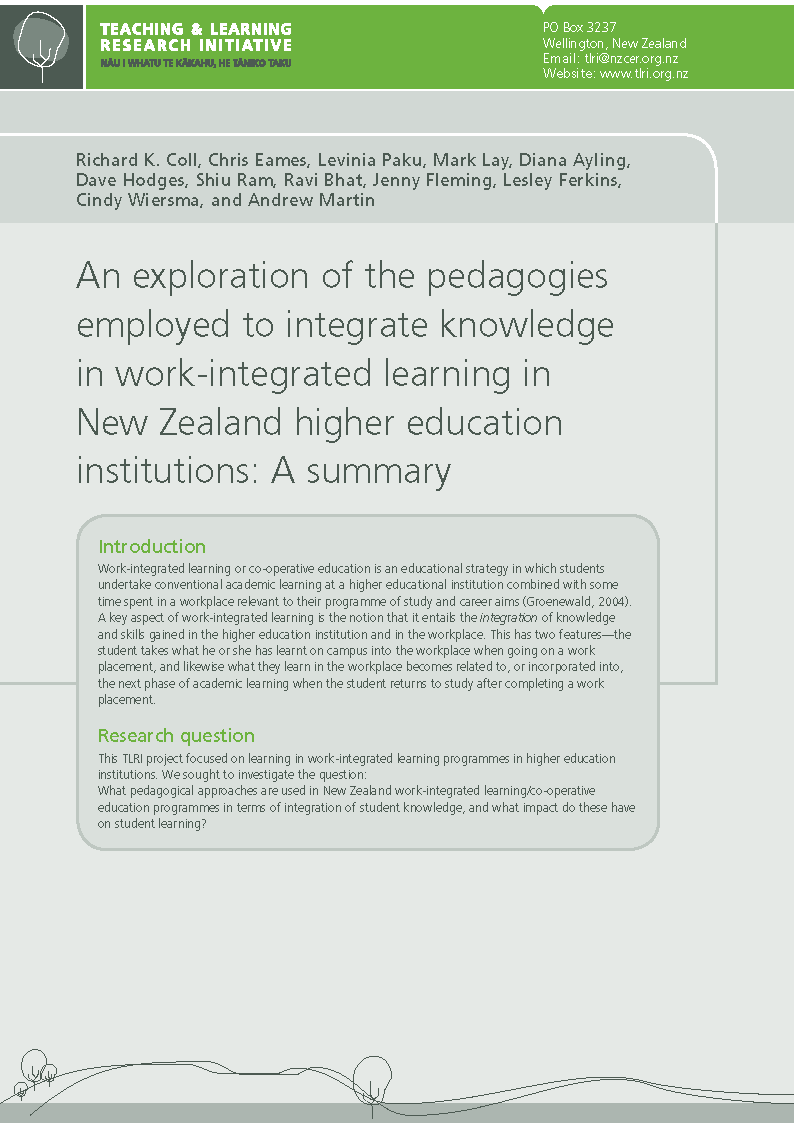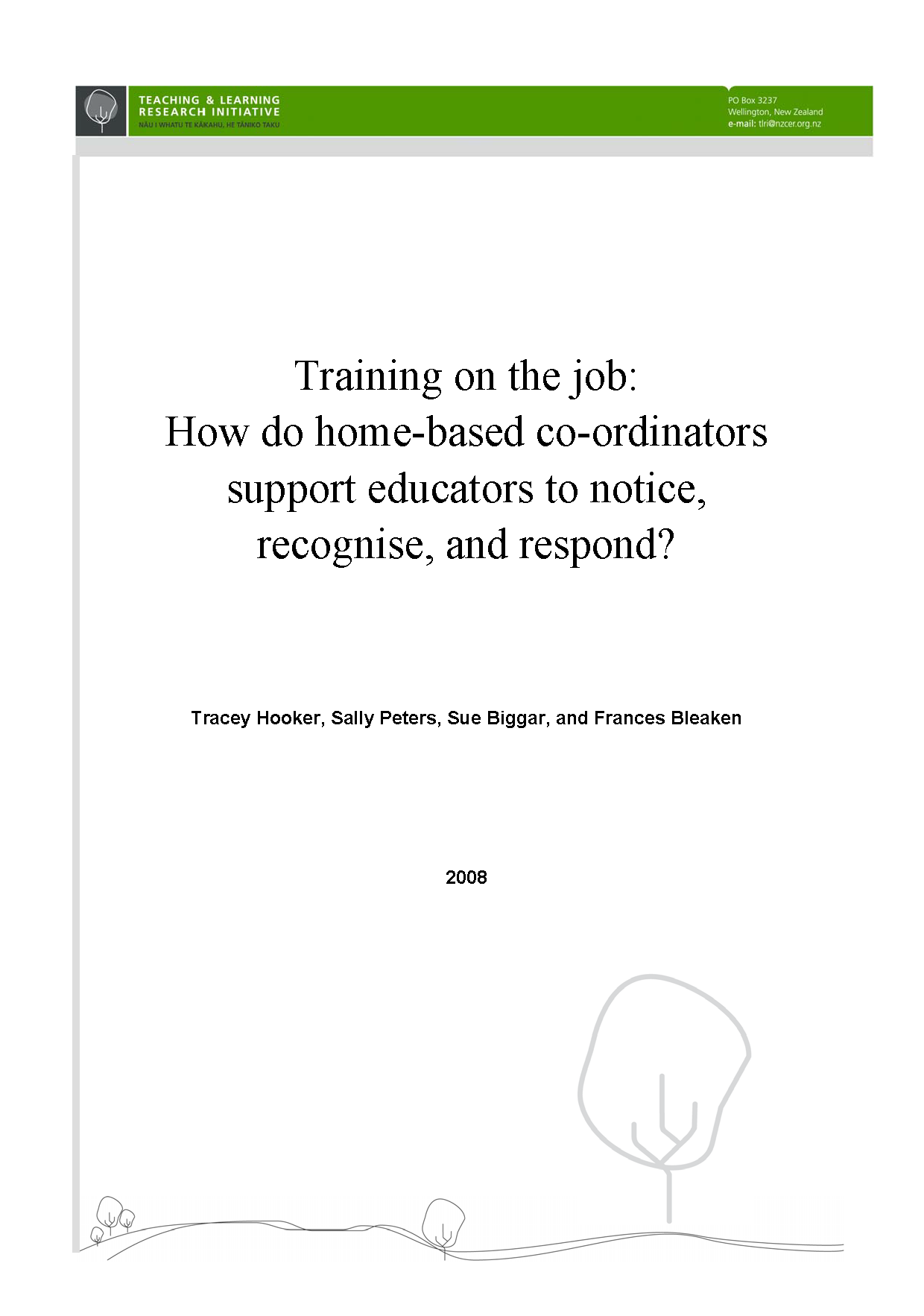
An exploration of the pedagogies employed to integrate knowledge in work-integrated learning in New Zealand tertiary educational institutions
Introduction Work-integrated learning or co-operative education is an educational strategy in which students undertake conventional academic learning at a higher educational institution combined with some time spent in a workplace relevant to their programme of study and career aims (Groenewald, 2004). A key aspect of work-integrated learning is the notion that it entails the integration of knowledge and skills gained in the higher education institution and in the workplace. This has two features—the student takes what he or she has learnt on campus into the workplace when going on a work placement, and likewise what they learn in the workplace becomes related to, or incorporated into, the next phase of academic


